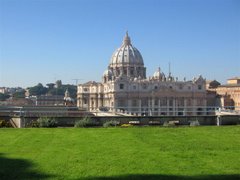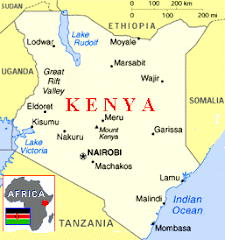The Orthodox Church has won its battle to make religious education compulsory in schools, but secularists have won concessions too.
 Patriarch Kirill's public triumph in Ukraine in July was preceded with another achievement no less important for the Russian Orthodox Church. This took place in the much more intimate atmosphere of the presidential residence in Barvikha, in the Moscow Oblast. There Dmitry Medvedev met with the leaders of Russia's traditional religions, and responded to two appeals from them.
Patriarch Kirill's public triumph in Ukraine in July was preceded with another achievement no less important for the Russian Orthodox Church. This took place in the much more intimate atmosphere of the presidential residence in Barvikha, in the Moscow Oblast. There Dmitry Medvedev met with the leaders of Russia's traditional religions, and responded to two appeals from them.
He agreed that the history and culture of the country's main religions should be included in the core school curriculum. He also agreed that the Armed Forces of the Russian Federation should have military priests.
Patriarch Kirill was the first to sign both documents. The Muslim and Jewish religious communities supported the Orthodox position, despite previous objections from some muftis and rabbis.
What will this decision mean in practice for schools? Twice a week from the spring of next year, pupils in the fourth and fifth classes will study one of three new subjects. They and their parents will be able to choose between the religious culture of one religion (Orthodox, Islam, Judaism or Buddhism), the history and cultural background of the world's great religions, or the foundations of secular ethics. It will be compulsory for pupils to choose one of these three modules.
To start with, it will be introduced in 18 regions in six of the seven federal regions of Russia. The three-year experiment will be introduced in 12,000 Russian schools, 20,000 classes, 256,000 children and 44,000 teachers, according to the Ministry for Education and Science. From 2012, the new modules will be introduced to all Russian schools.
These three modules, "Foundations of religious culture", "Foundations of history and culture of world religions" and "Foundations of secular ethics",- will be taught by teachers who have taken a special training course, though most of them will probably have had a secular education. The rector of Moscow's State University V.A. Sadovnichy has already expressed a desire to put the resources of the country's leading university behind the re-training of these specialists. But it is clear that at first the main problem will be a serious lack of qualified teaching staff.
The contents of the textbooks for these modules is also likely to prompt public debate. Consequently, the Church has already declared its readiness to work with the Ministry of Education and Science, the Russian Academy of Education, and a number of other institutes in order to inspect the new textbooks and study materials. This has already been announced by the head of the Synodal Department for Religious Education, Bishop Zaraisky Merkury.
Article by: Viktor Malukhin
tags : Orthodox Church, religious education, Russia




No comments:
Post a Comment